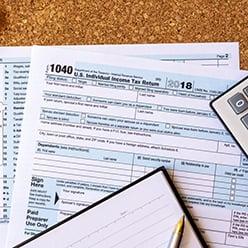
Talk to a Asset Recovery Expert Online Now
Unlimited chats with verified, top-rated Asset Recovery Experts.
Describe your issue
Chat 1:1 with an expert
Save time and money
What you get:

Unlimited conversations with tax experts
Connect with a verified tax expert in minutes. No waiting weeks for appointments. No high fees. No hassles.
Large Call to Action Headline

Across all areas of tax
Tax inquiries, returns, employment status, IRS backtaxes, estate taxes, forms, and more: our network of tax experts can answer your questions—now.

Across all areas of tax
Tax inquiries, returns, employment status, IRS backtaxes, estate taxes, forms, and more: our network of tax experts can answer your questions—now.
What can the Asset Recovery Special
Do For You?
Your team of tax experts is ready to help you in minutes with any tax question, plus:

Help prepare tax returns & answer tax questions

Small and medium-sized business help

Avoid issues with the IRS & assist with back taxes

Help prepare tax returns & answer tax questions
When a property goes through foreclosure, there may be
excess funds
after the sale of the property, which can be returned to the previous owner or lienholders. Here's a breakdown of the key points regarding these excess funds:
What Are Excess Funds?
Excess funds refer to the money left over after a foreclosure sale, when the sale price exceeds the amount owed on the mortgage and other costs (e.g., fees, unpaid taxes).These funds are the difference between the foreclosure sale price and the total debt owed by the borrower, including the mortgage balance, legal fees, and other liens.
Who Receives the Excess Funds?
The former homeowner (borrower) is typically entitled to the excess funds, but only after all valid claims and liens have been paid.Lienholders (e.g., second mortgage holders, tax authorities) are paid before the former homeowner, in order of priority.
Process for Claiming Excess Funds
Foreclosure Sale: After the property is sold at auction, the proceeds are used to pay off the mortgage lender, attorney fees, and other applicable costs.Excess Proceeds: If the sale price exceeds the amount owed, the remaining funds are considered "excess proceeds."Notification: The court or sheriff conducting the sale will typically notify the former homeowner and other interested parties about the excess funds.Filing a Claim: The homeowner or lienholders must file a claim with the court or the relevant agency handling the foreclosure sale to recover the excess funds.Timeframe: There is usually a time limit (often 1 to 2 years) to claim excess funds. If unclaimed, the funds may be forfeited.
Common Factors Affecting Excess Funds
Priority of Liens: Lienholders (e.g., second mortgage lenders, tax authorities) have priority over the homeowner in receiving excess funds. Homeowners may only receive what remains after all claims are settled.State Laws: Rules and procedures for handling excess funds vary by state, including who can claim them and how the process works.Foreclosure Type: The type of foreclosure (judicial vs. non-judicial) may impact the process and the distribution of funds.
Legal Considerations
Judgment for Excess Funds: In some cases, the former homeowner may need to go to court to get a judgment for the excess funds.Setoffs and Claims: If the borrower has outstanding debts or judgments unrelated to the mortgage, creditors may attempt to claim some or all of the excess funds.Bankruptcy: If the homeowner has filed for bankruptcy, excess funds may be diverted to satisfy bankruptcy claims.
Risks of Not Claiming Excess Funds
Loss of Funds: If the funds are not claimed within the set period, they may be transferred to the county or state, depending on local laws.Forfeiture: In some jurisdictions, unclaimed excess funds may be kept by the government after the statute of limitations expires.
Examples of Parties Who Might Be Entitled to Excess Funds
Homeowner: Once the mortgage and liens are paid off, any remaining amount generally goes to the homeowner.Lienholders: If there are other liens (e.g., second mortgage, property tax liens), they may claim a portion of the excess funds.Government: If there are any unpaid property taxes or other debts owed to government agencies, they will be paid first.
How to Ensure You Receive Excess Funds
Track the Foreclosure Process: Stay informed throughout the foreclosure process, especially the sale, so you can act quickly if there are excess funds.Consult with a Lawyer: If you’re unsure about the process or your rights, it may be helpful to consult a foreclosure attorney to navigate the claims process.
By understanding the process and acting promptly, you may be able to recover any excess funds from a foreclosure sale.Specialties include: tax forms, tax returns, Social Security, employee status, financial software, and more...

Jill F.
Tax, Accounting, Canada Tax

I enjoy being able to help those who don't know where to look for an answer or feel more comfortable talking to an expert, even if they have the answer.

Stephen G.
Tax, IRS, Accounting

JustAnswer gives customers the chance to get high value attention for minimal cost. Often, Experts like me can direct people to other resources to assist them solve their tax problems.

Damien B.
Tax, Tax Law, Estate Law

Just Answer is one of the most valuable resources for people to get a better understanding of their legal issues and to review options they may have before pursuing further action.
When you can’t afford to be wrong
A lack of expertise with proper care can cost you and your family dearly. Don't chance your financial well-being by delaying taxes or sift through thousands of Google search results on your own.
When you can't afford to be wrong, let the tax professionals on TaxExpertNow help you get it right.
Powered by OveragesAdvisor © 2024
OveragesAdvisor.com
All rights reserved.
Privacy Policy Terms of Service